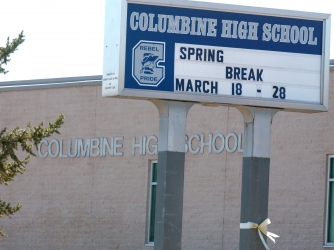According to ABC News, for the first time in almost 17 years, Sue Klebold, the mother of Dylan Klebold, may hold her first-ever television interview with them, regarding the Columbine shooting.
On April 20, 1999, Dylan Klebold and Eric Harris committed one of the largest school massacres in American history. They were equipped with 95 bombs (most of which were handmade) and more than four highly sophisticated guns. In less than one hour, 15 people were killed, and more than 24 were injured. If their handmade bombs had gone off, the massacre would have been much more destructive.
What could have led these two teens to commit such murder? Why did they feel the need to kill their fellow peers and teachers? Although it is not possible to correctly answer these questions, there are plentiful pieces of evidence that formulate into hypotheses.
Both Klebold and Harris were considered “loners” at Columbine High School. Their peers thought of them as freaks and often did not invite them to social events. At first, many considered Klebold and Harris as part of an outsider group called the “Trenchcoat Mafia,” but it is now known that the two never had a true connection with the group. They were targets of bullying. As a result, Klebold and Harris ended up only having each other to rely on.
The history of Klebold and Harris before the shooting was not clear either. Before committing the murders, the two worked as crime partners to break into vans, steal computers, threaten the life of Brooks Brown (a fellow peer), and other misdeeds. They left a negative impression on juvenile officers, and were sent to receive psychiatric treatment and perform community service, none of which helped to build their characters.
According to a CNN investigation article on the shooting, Klebold and Harris had made home basement videos prior to the shooting, making references to why they were going to commit the shooting and apologizing to their parents for it. These videos were very violent and showed what dangers this pair was capable of. Not only were explicit words used frequently, but clips of their destructive weapons were revealed as well. The boys felt strong hatred for humanity, and consequently, these thoughts led to the violent actions.
“I struggle with how someone can turn to such calculated and unthinkable violence,” said a current theater teacher (who wishes to be kept anonymous) who was a high schooler in 1999, to JSR. “I just don’t get it–how these two boys can become two killers.”
As time passed, many psychologists, researchers, and law enforcement agencies have tried their very best to understand the two teens’ points of view from the evidence given. Even with their efforts, it has still been impossible to find the deeper meaning of the shooting itself and to fully understand why Klebold and Harris decided to kill so many people. As a result, many are hoping that Sue Klebold’s interview will clarify the controversial questions that have built up throughout the years.
“Personally, there isn’t much I’m expecting from the interview,” said the teacher. “It is very unlikely that my opinion on the shooting itself will change after hearing Sue Klebold speak; I just think that it would be interesting to hear the first-hand experience of such a tragic event.”
Although many are looking forward to the interview that may supposedly clear the air, it is still not 100-percent guaranteed that Sue Klebold will speak to the public about the matter at hand. If she does, however, the interview is expected to be released in late February.

